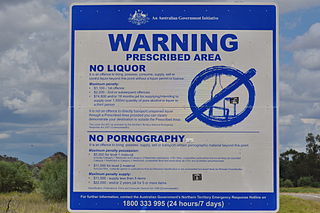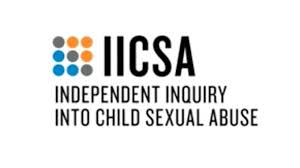Notes
- ↑ 7.30 Report - 15 August 2002: Call for national response to child sex abuse report
- ↑ Report of the Inquiry...
- ↑ Report of the Inquiry..., p. xx.
- ↑ Report of the Inquiry...; see Recommendation 141.
- ↑ Report of the Inquiry..., 37.
- ↑ Report of the Inquiry..., finding 15.
- 1 2 Report of the Inquiry..., 32.
- ↑ Report of the Inquiry..., 30.
- ↑ Report of the Inquiry..., p. 25.
- ↑ Report of the Inquiry..., 26.
- ↑ Report of the Inquiry..., Findings 8 and 10.
- ↑ Report of the Inquiry..., 19.
- ↑ Report of the Inquiry..., 20.
- 1 2 Report of the Inquiry..., Session 1, 30 June 2004, p. 7.
- ↑ Report of the Inquiry..., p 4.
Related Research Articles
The Ferns Report (2005) was an official Irish government inquiry into the allegations of clerical sexual abuse in the Roman Catholic Diocese of Ferns in County Wexford, Ireland.
Robert Charles Bropho was a Ballardong Noongar Australian Aboriginal, rights activist, and convicted serial child sex offender from Perth, Western Australia.

The Swan Valley Nyungah (Noongar) Community was an Aboriginal community of Noongar people at Lord Street, in the outer Perth suburbs of Lockridge and Eden Hill.
The Kincora Boys' Home was a boys' home in Belfast, Northern Ireland that was the scene of serious organised child sexual abuse, causing a scandal and attempted cover-up in 1980, with allegations of state collusion. The Northern Ireland Historical Institutional Abuse Inquiry (HIA) began examining allegations relating to the Home on 31 May 2016, including claims that there was a paedophile ring at the home with links to the intelligence services; Northern Ireland Secretary Theresa Villiers said that all state agencies would co-operate with the inquiry.

Sandra Myrtho Kanck is a South Australian politician. She was a member of the South Australian Legislative Council from 1993 to 2009, first elected for the Australian Democrats for an eight-year term at the 1993 election and was re-elected for the Democrats for another eight-year term at the 2002 election. Kanck announced her parliamentary resignation in November 2008, taking effect in January 2009. Democrats nominee David Winderlich filled the upper house casual vacancy in a joint sitting of the Parliament of South Australia in February 2009.
Swimming Australia is the peak governing body for competitive swimming in Australia. The body has approximately 100,000 registered members nationally in 1100 clubs across the country, which includes swimmers, coaches, officials, administrators and volunteers. The body oversees the management and development of the sport from the national team at the elite level, the conduct of national and international events, through to grass roots participation. The organisation's vision is to become Australia's leading sport through increased participation, continual outstanding performance and commercial excellence.
The 2004 Palm Island death in custody incident relates to the death of an Aboriginal resident of Palm Island, Cameron Doomadgee on Friday, 19 November 2004 in a police cell. The death of Mulrunji led to civic disturbances on the island and a legal, political and media sensation that continued for fourteen years.
The North Wales child abuse scandal was the subject of a three-year, £13 million investigation into the physical and sexual abuse of children in care homes in the counties of Clwyd and Gwynedd, in North Wales, including the Bryn Estyn children's home at Wrexham, between 1974 and 1990. The report into the scandal, headed by retired High Court judge Sir Ronald Waterhouse QC, which was published in 2000, resulted in changes in policy in England and Wales into how authorities deal with children in care, and to the settling of 140 compensation claims on behalf of victims of child abuse.
Sue Gordon is an Aboriginal retired magistrate from Western Australia who has been locally and nationally honoured for her work with Aboriginal people and in community affairs. She is known for being chair of the Gordon Inquiry in 2002.
Little Children are Sacred, or Ampe Akelyernemane Meke Mekarle, is the report of a Board of Inquiry into the Protection of Aboriginal Children from Sexual Abuse, chaired by Rex Wild and Patricia Anderson. Commissioned by the government of the Northern Territory, Australia, the report was publicly released on 15 June 2007.

The Northern Territory National Emergency Response, also known as "The Intervention" or the Northern Territory Intervention, and sometimes the abbreviation "NTER" was a package of measures enforced by legislation affecting Indigenous Australians in the Northern Territory (NT) of Australia, which lasted from 2007 until 2012. The measures included restrictions on the consumption of alcohol and pornography, changes to welfare payments, and changes to the delivery and management of education, employment and health services in the Territory.
Edward Picton "Ted" Mullighan, QC was an Australian judge who was known as an Indigenous rights advocate and protecting vulnerable people. He was known for his role as Commissioner of the Government of South Australia' Children in State Care Commission of Inquiry from 2004 to 2008.
The Catholic sexual abuse scandal in Victoria is part of the Catholic clerical sexual abuse in Australia and the much wider Catholic sexual abuse scandal in general, which involves charges, convictions, trials and ongoing investigations into allegations of sex crimes committed by Catholic priests and members of religious orders. The Catholic Church in Victoria has been implicated in a reported 40 suicides among about 620 sexual abuse victims acknowledged to the public after internal investigations by the Catholic Church in Victoria.
The sexual abuse in the Roman Catholic Diocese of Cloyne was investigated by the Commission of Investigation, Dublin Archdiocese, Catholic Diocese of Cloyne, examining how allegations of sexual abuse of children in the diocese were dealt with by the church and state. The investigation was led by Judge Yvonne Murphy, The Cloyne Report, and published in July 2011. The inquiry was ordered to look at child protection practices in the diocese and how it dealt with complaints against 19 priests made from 1996.
The Sixties Scoop was a period in which a series of policies were enacted in Canada that enabled child welfare authorities to take, or "scoop up," Indigenous children from their families and communities for placement in foster homes, from which they would be adopted by white families. Despite its name referencing the 1960s, the Sixties Scoop began in the mid-to-late 1950s and persisted into the 1980s.
The Royal Commission into Institutional Responses to Child Sexual Abuse was a royal commission announced in November 2012 and established in 2013 by the Australian government pursuant to the Royal Commissions Act 1902 to inquire into and report upon responses by institutions to instances and allegations of child sexual abuse in Australia. The establishment of the commission followed revelations of child abusers being moved from place to place instead of their abuse and crimes being reported. There were also revelations that adults failed to try to stop further acts of child abuse. The commission examined the history of abuse in educational institutions, religious groups, sporting organisations, state institutions and youth organisations. The final report of the commission was made public on 15 December 2017.

The Rotherham child sexual exploitation scandal consisted of the organised child sexual abuse that occurred in the town of Rotherham, South Yorkshire, Northern England from the late 1980s until the 2010s and the failure of local authorities to act on reports of the abuse throughout most of that period. Researcher Angie Heal, who was hired by local officials and warned them about child exploitation occurring between 2002 and 2007, has since described it as the "biggest child protection scandal in UK history". Evidence of the abuse was first noted in the early 1990s, when care home managers investigated reports that children in their care were being picked up by taxi drivers. From at least 2001, multiple reports passed names of alleged perpetrators, several from one family, to the police and Rotherham Council. The first group conviction took place in 2010, when five British-Pakistani men were convicted of sexual offences against girls aged 12–16. From January 2011 Andrew Norfolk of The Times pressed the issue, reporting in 2012 that the abuse in the town was widespread and that the police and council had known about it for over ten years.
Child sexual abuse is a matter of concern in Australia, and is the subject of investigation and prosecution under the law, and of academic study into the prevalence, causes and social implications.

The Independent Inquiry into Child Sexual Abuse (IICSA) in England and Wales was an inquiry examining how the country's institutions handled their duty of care to protect children from sexual abuse. It was announced by the British Home Secretary, Theresa May, on 7 July 2014. It published its 19th and final report on 20 October 2022.

The Retta Dixon Home was an institution for Aboriginal children in Darwin, Northern Territory, Australia, from 1946 until 1982. It was located on the Bagot Aboriginal Reserve, and run by Aborigines Inland Mission of Australia.
References
- "Report of the Inquiry into Response by Government Agencies to Complaints of Family Violence and Child Abuse in Aboriginal Communities" (PDF). Archived from the original (PDF) on 10 June 2004.